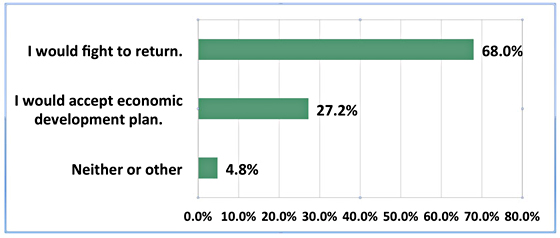On June 25-26, Jared Kushner orchestrated the “Peace to Prosperity” economic workshop in Bahrain. Kushner is President Donald Trump’s son-in-law and his senior adviser on negotiating a Middle East peace. The White House plan closely follows a strategy proposed by the late Israeli President Shimon Peres. Peres assumed integration of the Middle East through widescale economic development would induce all parties to successfully tackle more difficult final status issues of borders, territory and refugees at a later time.
Palestinian government officials have broken off contact with the Trump administration since its December 2017 recognition of Jerusalem as Israel’s capital and relocation of the U.S. Embassy from Tel Aviv to Jerusalem. They did not attend the conference, but some Palestinian businesspeople did.
While the “Peace to Prosperity” plan mentions the West Bank and Gaza, it makes no reference to Jerusalem. The financing for “Peace to Prosperity” is extremely speculative with no firm guarantees that any funding would materialize even if the Palestinians accepted.
It is unlikely the Trump administration’s upcoming “Political Plan”—which has been written but not released—will recognize the Palestinian right to return or establish a Palestinian state within pre-1967 borders with East Jerusalem as the capital. The U.S. negotiating team members are essentially Israeli hardliners in all but domicile. Special Envoy for International Negotiations Jason Greenblatt recently referred to illegal Israeli West Bank settlements as “neighborhoods and cities” that are not an obstacle to peace.
To gauge U.S. public opinion about the “Peace to Prosperity” plan, IRmep put a national sample of American adults in the shoes of Palestinian refugees, notably the 750,000 forcibly expelled during Israel’s creation and their descendants living in Gaza, West Bank, Jordan, Lebanon and Syria. When asked the purposefully ambiguous question, “If you were expelled & resettled into a resource restricted area, would you fight to return or forfeit legal claims for a new life under a promised economic development plan?” a solid 68 percent of Americans said they would fight to return.

IRmep Poll: If you were expelled & resettled into a resource restricted area, would you fight to return or forfeit legal claims for a new life under a promised economic development plan? SOURCE: IRmep representative poll of 1,450 American adults fielded through Google Surveys on July 11-21, 2019.
Grant F. Smith is the director of the Institute for Research: Middle Eastern Policy in Washington, DC. For more IRmep polls, visit https://IRmep.org/Polls.
